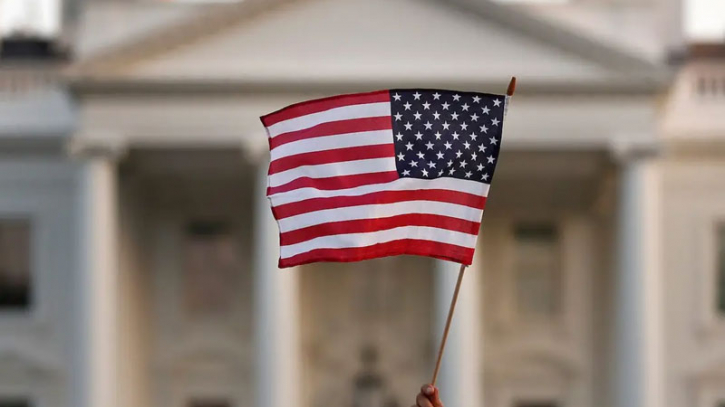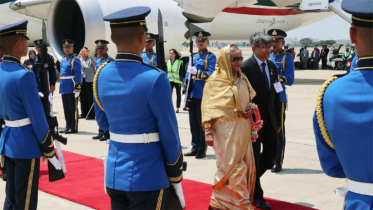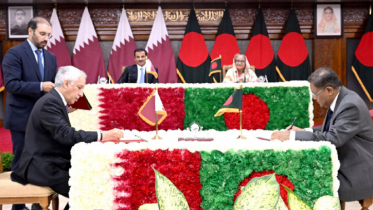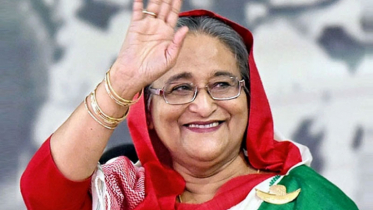Betting on the wrong horse can be costly

The United States of America, the country of great Presidents like George Washington, Thomas Jefferson, Abraham Lincoln and iconic Civil Rights activist Martin Luther King, seems to have an enviable record for selecting the wrong horses for betting in politics. This has not only damaged its image but also in many cases dented its credibility, especially when it talks about human rights and democracy. There was a time in the post-WWII when the country could walk away with its hegemonistic foreign policy as it was then considered to be the only economic and military superpower. But, its position has been challenged by Russia (former USSR), China and even India in recent years, with Brazil, Iran and Turkey waiting in the wings.
The US cannot afford the luxury of not resetting its foreign policy under the prevailing global reality or creating another Nixon-Kissinger-like situation where the regime over the years became a nexus of misdeeds in countries of their disliking. The culture of regime change in US foreign policy began soon after the end of WWII. The first to fall was the elected government of Dr. Mohammad Mosaddegh in Iran. The US put its bet on Iran’s ruler Mohammad Reza Pahlavi, who plundered the oil revenue of his own country for decades in connivance with British Oil companies. Later, Shah was overthrown by the Iranian Revolution in 1979, and the US lost Iran as a friend permanently. Similarly, Marcos of the Philippines, Suharto of Indonesia, Pinochet of Chile, Hosni Mubarak of Egypt, Hamid Karzai of Afghanistan or even Saddam Hussein of Iraq and many more dictators, with the help of the US, usurped state power and ruled their country ruthlessly some for decades and till they were overthrown through mass uprising. However, in the end, the US lost many of its friends in the process. In the current geopolitical fast-moving developments, countries like the US or other superpowers need to be more careful when they make political moves in other countries.
Preceding the 7 January election in Bangladesh, the flurry of activities of US diplomats raised many eyebrows as to the intention of the US in Bangladesh vis-à-vis the election. Things turned so sour that even Prime Minister Sheikh Hasina accused a particular country (read the US) is trying to unseat her government through conspiracy. Her accusation was more reinforced when a senior US State Department diplomat, known to be a regime change expert frequently came rushing to Dhaka and kept on advising how the US wanted Bangladesh’s election to be held, even though the elections are an internal matter of a country and are guided by its constitution and laws. This particular diplomat has been accused by Pakistan’s former Prime Minister Imran Khan of being instrumental in deposing him in 2022 before he could complete his five-year tenure.
However, it now seems that the US has changed its tone and is keen to work with the new government. It began with a letter from US President Joe Biden written to Bangladesh’s Prime Minister on 6 February and followed by the visit of a high-powered delegate led by one of its Deputy Assistant Secretary. This is a step in the right direction but came after months of misunderstanding between the two countries caused because of the inept and short-sighted handling of political developments in Bangladesh by the US State Department and its officials. Besides business relations, Bangladesh’s geo-strategic location is expected to play an important role in the US’s Indo-Pacific Strategy. Therefore, both countries must go along.
Currently, there is an ongoing and live genocide being committed in the Gaza Strip of Palestine by Israel with the active support of the US. Already, more than 30,000 people, including children, have been killed by Israel, 70,000 maimed and starving and there is no end in sight. Every time there is a move in the UN Security Council to enforce a ceasefire in Gaza so that humanitarian aid can be sent and lives saved, the US vetoes any resolution on the pretext that Israel has the right to defend itself, disregarding the fact that Palestinians have similar rights too.
Besides the UN, there are moves in the International Criminal Court (ICJ) of Hague in the Netherlands to try Israel for the ongoing genocide, but no decision of ICJ can be enforced as long as the US supports Israel. The US has managed to create immunity for itself when it comes to any judgment that may directly or indirectly accuse the US of War Crimes as the US has an Act called the ‘The Hague Invasion Act’ that authorises the US President to invade Hague in case the ICJ orders any action against US military personnel for being accessory to any genocide anywhere in the world. The US has committed acts of genocide in Vietnam, Iraq, Libya and Syria but could never be brought to face justice in any international court for their crimes because of this Act. The current situation in Palestine will surely not add any friend to the friend list of the US. It is again the US betting on another wrong horse.
With its clout and global standing, the US could be a catalyst of peace and harmony in the current restive world. It only needs to be a bit more considerate and play its expected role on the world stage. The post-WWII foreign policy of the US perhaps needs a thorough rebooting.
Source: The Daily Sun
.png)




